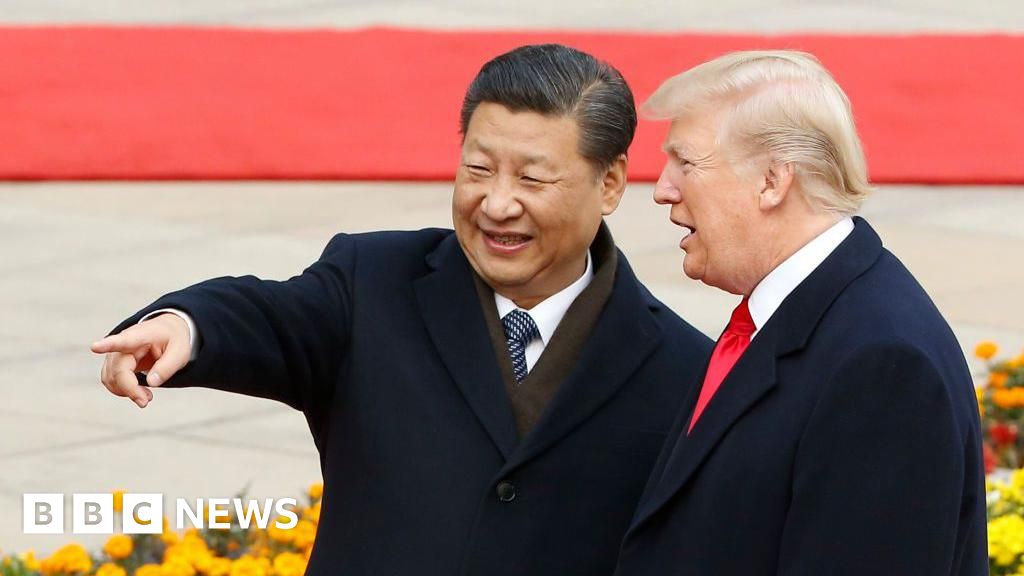Scientists using “disease in a dish” technology to study multiple sclerosis (MS) identified an unusual type of brain cell that they say may play a vital role in…
Blog
-

Unusual Brain Cell Type Linked to Progressive MS, Could Point to Therapeutics
Credit: Juan Gaertner/Science Photo Library/Getty Images -

This fleet of sungazing spacecraft could help spot ‘space tornadoes’ headed towards Earth
A fleet of sentinel spacecraft, including one with a huge solar sail, could watch out for sneaky “space tornadoes” posing a threat to Earth during solar storms, a new study suggests.
The proposal says that four deep-space spacecraft, collectively…
Continue Reading
-

Emerging Markets Stocks and Currencies Are Forecast to Rally
Macroeconomic factors could also support EM stocks. The US Fed is forecast to cut rates further, creating room for further monetary easing and stronger growth across a number of emerging markets, Trivedi writes.
And the US dollar “will likely stay on the back foot” relative to emerging markets currencies amid a softening US labor market and a potential increase in investment flows into EM stocks and bonds as investors diversify away from the dollar. A weakening dollar can boost flows into EM stocks as investors look for higher returns outside the US.
Which Stock Markets Are Forecast to Grow?
Within Asian markets, Goldman Sachs Research sees investment opportunities in Chinese and Korean equities.
In Korea, 70% of stocks trade below book value (the implied value of a stock based on the company’s assets minus its liabilities). Ongoing reforms to the way companies are governed in Korea could also drive up the country’s equity prices, as could Chinese efforts to address disorderly price cutting and excessive competition among producers.
Meanwhile, Saudi Arabian equities could benefit from the potential easing of limits on foreign ownership of listed companies, which Goldman Sachs Research estimates could unlock passive inflows up to $10 billion to the Saudi markets.
“On balance, this should be supportive of Saudi equities—which have lagged EM in the year to date—and fits with our regional diversification theme,” Trivedi writes.
On the other hand, Indian equities have lagged other emerging markets this year. High valuations, higher-than-expected tariffs, and challenges for the software sector from the increased price of US H1B visas suggest that a broad recovery might not be imminent.
Beyond Asia, the team anticipates continued gains from South African stocks as rising gold prices help mining companies and inexpensive domestic sectors could benefit from a potential growth recovery and lower borrowing costs.
Why are emerging currencies strengthening against the US dollar?
Emerging market currencies outperformed their peers from major developed economies in September, and Goldman Sachs Research anticipates that this outperformance could continue.
There are three key factors supporting the appreciation of EM currencies relative to their DM peers. Firstly, high levels of carry (when investors borrow currency in a country with lower interest rates in order to invest somewhere with higher rates) are contributing to the attractiveness of emerging markets currencies relative to other major currencies.
Secondly, the team notes that the US dollar has been acting more like a cyclical currency lately—one which appreciates as the economy grows and declines when the economy is under pressure—particularly when a shock emanates from the US.
As a result, EM currencies are likely to weaken less significantly against the dollar in the event of changes to risk sentiment or downward revisions to growth expectations in the US.
And finally, the strong performance of EM equities is also likely to have played a role in the appreciation of EM currencies relative to their developed market peers.
The team has found that there is a relationship between the performance of EM currencies and relative equity returns. In short, “the best environment for EM foreign exchange is when both the MSCI EM and S&P indices are going up and MSCI EM is outperforming,” Trivedi writes.
This article is being provided for educational purposes only. The information contained in this article does not constitute a recommendation from any Goldman Sachs entity to the recipient, and Goldman Sachs is not providing any financial, economic, legal, investment, accounting, or tax advice through this article or to its recipient. Neither Goldman Sachs nor any of its affiliates makes any representation or warranty, express or implied, as to the accuracy or completeness of the statements or any information contained in this article and any liability therefore (including in respect of direct, indirect, or consequential loss or damage) is expressly disclaimed.
Continue Reading
-

Trump threatens to pull out of planned Xi meeting
President Donald Trump has threatened to pull out of an expected meeting with President Xi Jinping of China after Beijing tightened its rules for exports of rare earths.
In a post on social media, Trump said he now saw “no reason” to meet with President Xi later this month, accusing China of “becoming very hostile” and trying to hold the world “captive”.
He also threatened a “massive” increase in tariffs on Chinese goods, raising fears about further escalation of trade tensions between the two economic giants.
Financial markets dropped in the wake of the remarks, with the S&P 500 down 1.8% in mid-afternoon trade in New York.
The last time Beijing tightened export controls – after Trump raised tariffs on Chinese goods early this year – there was an outcry from many US firms reliant on the materials . Carmaker Ford even had to temporarily pause production.
In addition to tightening rules for rare earth exports, China has opened a monopoly investigation into the US tech firm Qualcomm that could stall its acquisition of another chipmaker.
Although Qualcomm is based in the US, a significant portion of its business is concentrated in China.
Beijing has also said it will charge new port fees to ships with ties to the US, including those owned or operated by US firms.
“Some very strange things are happening in China!” Trump wrote in a post on social media on Friday. “They are becoming very hostile.”
The US and China have been in a fragile trade détente since May, when the two sides agreed to drop triple-digit tariffs on each others’ goods that had nearly stopped trade between the two countries.
Officials have held a series of talks since then on matters including TikTok, agricultural purchases, and the trade of advanced technology like semiconductors and rare earths supplied by China, which are key components in cars, smartphones and many other items.
The two sides were expected to meet again this month at a summit in South Korea.
China expert Jonathan Czin, a fellow at the Brookings Institution, said Xi’s recent actions were a bid to shape the upcoming talks, noting that the recent rare earths directive does not go into effect immediately.
“He’s looking for ways to seize the initiative,” he said. “The Trump administration is having to play a game of whack-a-mole and deal with these issues as they come up.”
He added that he did not think China was worried about US retaliation in response.
“What China took away from the Liberation Day tariffs and the cycle of escalation followed by de-escalation is that the Chinese side had a higher pain threshold,” he said. “From their perspective, the Trump administration blinked.”
In prior rounds of trade talks, China has pushed for looser US restrictions on semiconductors. It is also interested in securing more stable tariff policies that would make it easier for its businesses to sell into the US.
Xi has previously used as leverage his country’s dominance of production of rare earths, critical minerals and other materials.
But the export rules unveiled this week target overseas defence manufacturers, making them particularly serious, said Gracelin Baskaran, director of the critical minerals security program at Washington-based Center for Strategic and International Studies.
“Nothing makes America move like targeting our defence industry,” she said. “The US is going to have to negotiate because we have limited options, and in an era of rising geopolitical tension and potential conflict, we need to build our industrial defence base.”
While a Trump-Xi meeting now looks unlikely, she said it was not necessarily completely off the table. Ms Baskaran said there’s still time and room for talks. China’s new rules don’t take effect until December.
“Negotiations are likely imminent,” she said. “Who does them and where they happen will be determined with time.”
Continue Reading
-

RCC Monthly Rewind: Key News and Expert Insights You May Have Missed in September 2025
September delivered several developments in renal cell carcinoma (RCC). Highlights included real-world findings on belzutifan (Welireg)–related adverse effects across tumor types, insights from the phase 1 STELLAR-002 trial (NCT05176483)…
Continue Reading
-

Quadri Aruna explains his decision to withdraw from 2025 African Table Tennis Championships
Aruna, the first African ever to reach the quarter-finals of the Olympic Games in table tennis, is also the second most decorated player in the history of the ITTF-Africa Championships—behind Egypt’s Omar Assar, who will be chasing his fifth…
Continue Reading
-

Netflix Launches Party Games for TVs
Netflix is expanding its video game offerings from mobile into TV by launching party games that its subscribers can play on smart TVs.
While Netflix has been offering games for a while, those games were only available on mobile.
In the initial…
Continue Reading
-

Apple is bringing live NBA games to the Vision Pro in 2026
Apple is partnering with Spectrum SportsNet to stream select Los Angeles Lakers games directly to the Apple Vision Pro during the 2025-2026 basketball season. The games will be filmed in the Apple Immersive video format, the same VR-friendly…
Continue Reading
-

Study: Light-driven reaction leads to advanced hybrid nanomaterial
Scientists are exploring many ways to use light rather than heat to drive chemical reactions more efficiently, which could significantly reduce waste, energy consumption, and reliance on non-renewable resources.
A…
Continue Reading
-

Major US online retailers remove listings for millions of prohibited Chinese electronics
WASHINGTON, Oct 10 (Reuters) – The chair of the Federal Communications Commission said on Friday that major U.S. online retail websites have removed millions of listings for prohibited Chinese electronics as part of a crackdown by the agency.
FCC Chair Brendan Carr said in an interview that the items removed are either on a U.S. list of barred equipment or were not authorized by the agency, including items like security cameras and phones from companies like Huawei and ZTE (000063.SZ). He said companies are putting new processes in place to prevent future prohibited items as a result of FCC oversight.Sign up here.
“We’re going to keep our efforts up,” Carr said.
U.S. agencies in recent years have taken a series of actions against Chinese tech companies, including telecom, semiconductors, vehicles and others raising national security concerns. This is the latest push to prevent unapproved Chinese electronics from getting to the U.S. market.
Earlier this week, the FCC said it plans to vote this month to tighten restrictions on telecommunications equipment made by Chinese companies deemed national security risks, the latest in a series of U.S. actions targeting Beijing.
The U.S. telecom regulator previously named companies including Huawei Technologies, ZTE (000063.SZ), Hangzhou Hikvision (002415.SZ), China Mobile (600941.SS) and China Telecom (601728.SS) to the so-called “Covered List,” which bars the FCC from authorizing the import or sale of new equipment from those companies.The agency will vote on October 28 to prohibit authorization of devices containing component parts that are on the Covered List and authorize the agency to prohibit the sale of previously authorized Covered List equipment in specific cases.
In March, the FCC said it was investigating nine Chinese companies on the Covered List including Huawei, ZTE as well as Hytera Communications (002583.SZ), Dahua Technology Company (002236.SZ), Pacifica Networks/ComNet and China Unicom (Americas) (0762.HK).The Chinese embassy in Washington did not immediately comment.
The FCC previously barred some Chinese companies from providing telecommunications services in the United States, citing national security concerns.Last month, the FCC began proceedings to withdraw recognition from seven test labs owned or controlled by the Chinese government, citing U.S. national security concerns.
Reporting by David Shepardson; Editing by Mark Porter and Diane Craft
Our Standards: The Thomson Reuters Trust Principles.
Continue Reading